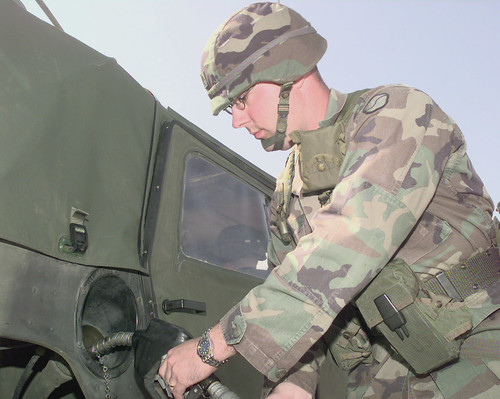Now available online! Proceedings of Intelligent Vehicle Technology Transfer (IVTT) Joint Military/Civilian Workshop on IntelliDrive
The proceedings from the recently held Intelligent Vehicle Technology Transfer (IVTT) Joint Military/Civilian Workshop on IntelliDrive are now available online for your perusal and downloading. The Workshop was held at the Holiday Inn, Gaithersburg, Maryland on July 30, 2009.
For those who are not in the know, the Intelligent Vehicle Technology Transfer (IVTT) Joint Military/Civilian Workshop on IntelliDrivesm is sponsored by the Defense Advanced Research Projects Agency (DARPA); and it is supported by the Department of Transportation Intelligent Transportation Systems Joint Program Office (DOT ITS JPO), the Army Tank Automotive Research, Development and Engineering Center (TARDEC), the Association for Unmanned Vehicle Systems International (AUVSI); the Intelligent Transportation Society of America (ITS America); and the Intelligent Systems Division of the National Institute of Standards and Technology (ISD NIST)
Please link to the IVTT website at www.Intelligent-Vehicle.com and go to the “Prior Events” tab and then click on “Workshop 2009” to access the Presentations and other Workshop information. (Alternatively, you can copy paste the following link: http://www.intelligent-vehicle.com/index.php/events-2009). Or you can simply click each of the following hyperlinked files to simply download them.
- Agenda 31 March 09.pdf
- Presentation 01 Scott Welcome.pdf
- Presentation 02 Finkelstein IVTT Technological Transformation.pdf
- Presentation 03 Dumas Intelligent Vehicle Technology In DARPA.pdf
- Presentation 04 Wilcox Robotic Systems Joint Project office.pdf
- Presentation 05 Rossi Emerging Intelligent Vehicles In FCS.pdf
- Presentation 06 Govers Guardium UGV.pdf
- Presentation 07 Shoemaker Autonomous Intelligent Vehicle Research.pdf
- Presentation 08 Scott Autonomous Intelligent Vehicle Technology At NIST.pdf
- Presentation 09 Schmidt Intelligent Vehicles And IntelliDrive.pdf
- Presentation 10 Fitch Intelligent Vehicle Perception And Autonomy.pdf
- Presentation 11 Pilutti Autonomous Vehicles And Collision Avoidance.pdf
- Presentation 12 Schmitt Intelligent Commercial Vehicles.pdf
- Presentation 13 Langer Autonomous Driving At VW.pdf
- Presentation 14 McBride Autonomous Vehicle Research At Ford.pdf
- Presentation 15 Rajkumar Making Autonomous Driving Real.pdf
- Presentation 16 Kern Intelligent Cars Trucks And Buses.pdf
- Presentation 17 Snyder Autonomous Intelligent Vehicles Now.pdf
- Presentation 18 McCormick Connected Vehicle Proving Center.pdf
- Presentation 19 Dallas Robotics Technology Consortium.pdf
- Presentation 20 Bishop Intelligent Vehicles Global Perspective.pdf
- Presentation 21 Albus Intelligent Vehicle Technology Gaps.pdf
- Presentation 22 Ayyub Intelligent Vehicles Towards Cognition.pdf
- Presentation 23 Finkelstein IVTT Roadmap.pdf
- Registrants List.pdf
The workshop was deemed a great success, and the DOT’s developing IntelliDrive system of systems can help satisfy the DOD’s needs for complex networks of sensors, vehicles, communications, and control centers. Please stay tuned to your website for the announcement(s) regarding the next event.
Do not forget to thank, Dr. Bob Finkelstein, the manager of IVTT Program for making these presentations publicly available.

